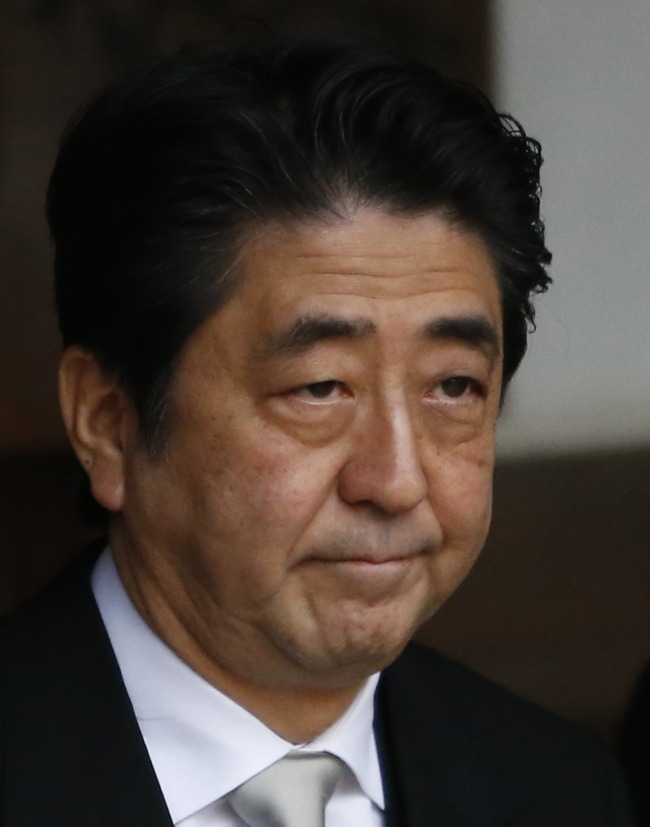
Shinzo Abe
Japanese leader Shinzo Abe is struggling to contain a backlash over his recent visit to a controversial war shrine that has sparked a barrage of criticism even from domestic supporters and international allies, notably the U.S.
The prime minister’s visit on Thursday to the Yasukuni Shrine in Tokyo honoring war criminals has further aggravated diplomatic tension with South Korea and China, two major victims of Japan’s past militarism, and frustrated peace advocates in the island country.
The visit also posed a major hurdle to Washington’s push to strengthen its network of security allies and partners in the Asia-Pacific, which will help prevent an increasingly assertive China from challenging the status quo.
Washington has expressed its disappointment, warning against Abe’s moves that would exacerbate regional tensions. Seoul and Beijing have been incensed at the hawkish Japanese leader, repeating their calls to rectify his “erroneous” historical perspectives.
The EU also joined the condemnation, saying Abe’s visit to the memorial was “not conducive” to lowering tensions in the region or to improving relations with the country’s neighbors.
Domestic criticism from the media and even from his fellow lawmakers has increased, although he may have elicited more political support from Japan’s right-wingers, who have long sought to rewrite the pacifist constitution for heavier armament.
Media have criticized Abe for negative diplomatic repercussions. Some members of his Liberal Democratic Party and its junior coalition partner, New Komeito, have also expressed dismay over the diplomatic isolation caused by Abe’s pilgrimage.
Japan’s Asahi Shimbun newspaper said in its editorial that Abe’s visit to the shrine could not be justified given its impact on the country’s security and economy. Nihon Geizai Shimbun criticized Abe for dividing public opinion, while Mainichi Shimbun called his visit a “wrong path” that risked diplomatic isolation.
Abe’s provocative move came as his government seeks to bolster the country’s military with the long-cherished goal of making Japan a “normal state” with a full-fledged military.
Under his mantra of active pacifism, Abe has pushed for the right to collective self-defense ― the use of force to aid allies being attacked ― by altering the government’s interpretation of the war-renouncing constitution.
The moves toward an increased military role have unnerved neighboring states that have repeatedly expressed concerns about Japan‘s lack of atonement for its wartime atrocities including sexual enslavement of Asian women.
By Song Sang-ho (
sshluck@heraldcorp.com)


![[Herald Interview] 'Amid aging population, Korea to invite more young professionals from overseas'](http://res.heraldm.com/phpwas/restmb_idxmake.php?idx=645&simg=/content/image/2024/04/24/20240424050844_0.jpg&u=20240424200058)



